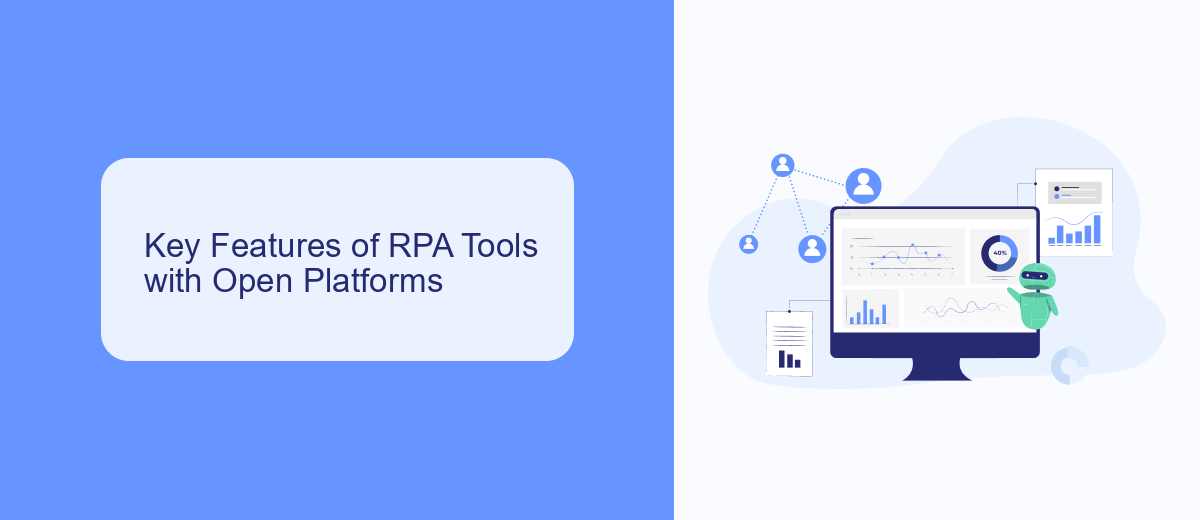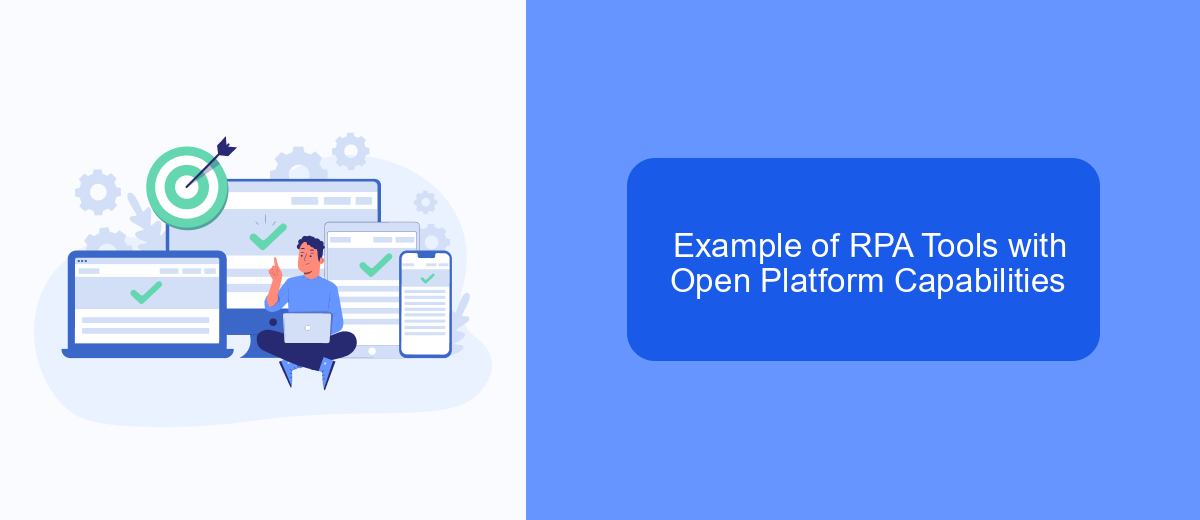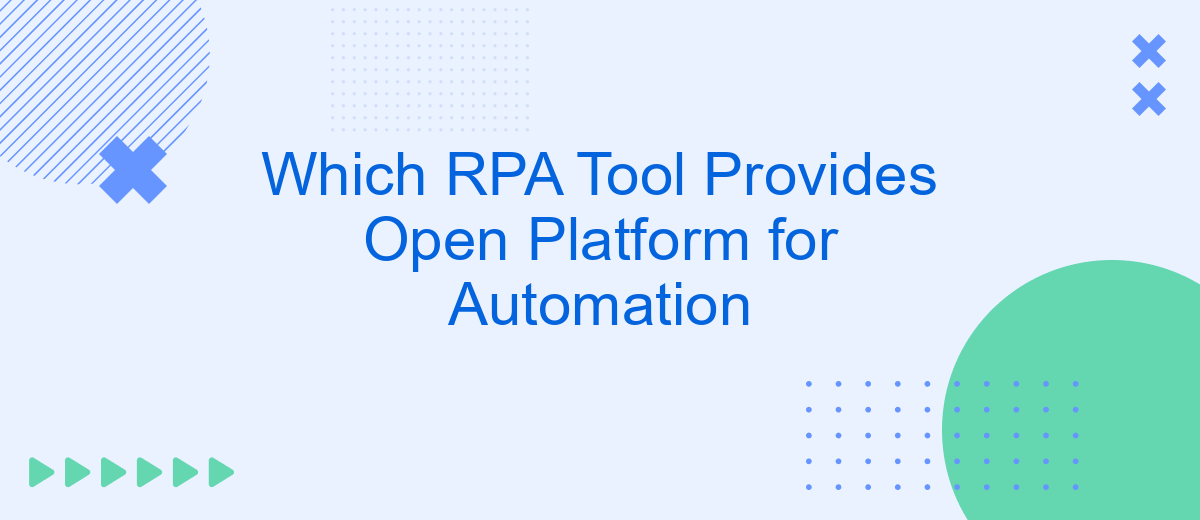In the rapidly evolving landscape of automation, selecting the right Robotic Process Automation (RPA) tool is crucial for businesses aiming to streamline their operations. This article explores which RPA tool offers an open platform for automation, enabling seamless integration and flexibility. By examining key features and benefits, we aim to guide organizations in making an informed decision that aligns with their automation goals and technological infrastructure.
Introduction
Robotic Process Automation (RPA) has become a transformative technology in the business world, enabling organizations to automate repetitive tasks and streamline workflows. As the demand for automation solutions grows, selecting the right RPA tool is crucial for achieving optimal results. One key consideration is whether the tool offers an open platform, which can significantly enhance flexibility and integration capabilities.
- Open platforms facilitate seamless integration with various systems and applications.
- They offer greater customization options to meet specific business needs.
- Open platforms encourage collaborative development and innovation.
Choosing an RPA tool with an open platform can provide a competitive edge by allowing businesses to adapt quickly to changing environments and leverage the full potential of their existing technology stack. This introduction explores the importance of open platforms in RPA tools and how they can drive efficiency and innovation in automation efforts.
Key Features of RPA Tools with Open Platforms

Robotic Process Automation (RPA) tools with open platforms provide a flexible and adaptable environment for automating business processes. One of the key features of these tools is their ability to integrate seamlessly with various applications and systems. This integration capability ensures that businesses can connect their existing software infrastructure with RPA solutions to enhance efficiency and streamline operations. Additionally, open platform RPA tools often support a wide range of programming languages and offer APIs, allowing developers to customize and extend functionalities to meet specific organizational needs.
Another significant feature of RPA tools with open platforms is their user-friendly interface, which enables both technical and non-technical users to design and implement automation workflows with ease. These tools often come with drag-and-drop functionalities and pre-built templates to simplify the automation process. Services like SaveMyLeads provide valuable support by facilitating integrations between various applications, ensuring data flows smoothly across platforms. This capability is essential for businesses looking to automate data entry, reporting, and other repetitive tasks without the need for extensive coding or technical expertise.
Benefits of Open Platforms in RPA Tools

Open platforms in Robotic Process Automation (RPA) tools provide significant advantages for businesses looking to streamline their processes. By offering flexibility and interoperability, open platforms enable seamless integration with various systems and applications, making it easier for organizations to adapt to changing technological landscapes. This openness fosters innovation, allowing developers to customize and extend functionalities to meet specific business needs.
- Interoperability: Open platforms support integration with diverse software ecosystems, enhancing connectivity and data flow.
- Scalability: They allow businesses to scale their automation efforts efficiently as they grow and evolve.
- Cost-Effectiveness: By reducing dependency on proprietary systems, open platforms can lower costs associated with vendor lock-in.
- Community Support: A vibrant community contributes to continuous improvement and innovation, providing valuable resources and solutions.
In conclusion, adopting RPA tools with open platforms can significantly enhance an organization's automation strategy. They not only offer the technical benefits of flexibility and scalability but also support a collaborative environment where businesses can leverage community-driven advancements. This approach ensures that companies remain agile and competitive in an ever-evolving digital landscape.
Example of RPA Tools with Open Platform Capabilities

Robotic Process Automation (RPA) tools with open platform capabilities are becoming increasingly essential for businesses seeking flexible and scalable automation solutions. These tools offer interoperability with various systems and allow for easy integration with existing technology stacks, enhancing overall operational efficiency.
Open platform RPA tools support collaboration and innovation by enabling developers to customize and extend functionalities according to specific business needs. This adaptability is crucial for organizations looking to maintain a competitive edge in rapidly changing markets.
- UiPath: Known for its community-driven approach, UiPath provides an open platform with extensive integration capabilities and a robust community forum.
- Automation Anywhere: This tool offers a flexible API and supports integration with a wide array of applications, making it a versatile choice for businesses.
- Blue Prism: With its focus on enterprise-level security and scalability, Blue Prism provides an open platform that supports collaboration and innovation.
These RPA tools not only facilitate seamless integration with existing systems but also empower businesses to tailor automation processes to their unique requirements. By leveraging open platform capabilities, organizations can achieve greater agility and drive digital transformation initiatives effectively.


Conclusion
In conclusion, selecting the right RPA tool with an open platform for automation is crucial for businesses aiming to enhance their operational efficiency and adaptability. Open platforms offer flexibility, allowing organizations to customize and scale their automation processes according to their specific needs. They also facilitate seamless integration with existing systems, ensuring a smooth transition and optimal performance. The ability to integrate with various services and platforms, such as SaveMyLeads, can significantly enhance the automation capabilities by streamlining data flow and improving decision-making processes.
Furthermore, as the demand for automation continues to grow, an open platform ensures that businesses are not locked into a single vendor, providing them with the freedom to adapt and evolve their automation strategies over time. This adaptability is essential in a rapidly changing technological landscape, where new challenges and opportunities constantly emerge. Ultimately, an open RPA platform not only supports current business objectives but also prepares organizations for future advancements, ensuring long-term success and competitiveness in the market.
FAQ
What is an open platform for RPA automation?
Which RPA tool is known for providing an open platform?
How does an open platform benefit RPA users?
What should be considered when choosing an open platform RPA tool?
How can businesses implement RPA without heavy technical expertise?
What do you do with the data you get from Facebook lead forms? Do you send them to the manager, add them to mailing services, transfer them to the CRM system, use them to implement feedback? Automate all of these processes with the SaveMyLeads online connector. Create integrations so that new Facebook leads are automatically transferred to instant messengers, mailing services, task managers and other tools. Save yourself and your company's employees from routine work.
